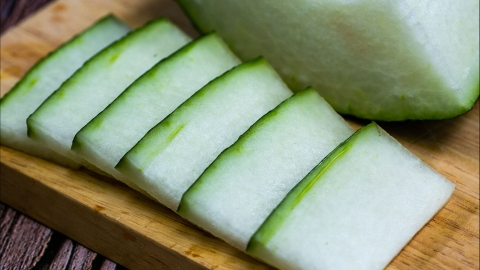What foods are good to eat for benign prostatic hyperplasia (BPH)?
Generally, patients with benign prostatic hyperplasia (BPH) should consume foods that have diuretic and urinary tract health benefits. Common examples include pumpkin seeds, winter melon, tomatoes, kiwifruit, and mung beans. Consuming these foods appropriately may help alleviate discomfort associated with BPH. Detailed explanations are as follows:

1. Pumpkin Seeds: Pumpkin seeds are neutral in nature and sweet in taste, rich in zinc and unsaturated fatty acids. They help support prostate health and improve urination. Regular consumption of pumpkin seeds can provide essential nutrients to the prostate and help relieve urinary discomfort such as frequent and urgent urination.
2. Winter Melon: Winter melon is cool in nature and mildly sweet in taste. It has functions of clearing heat, promoting diuresis, and reducing swelling. With a high water content, winter melon helps increase urine production and excretion, relieving pressure on the prostate and improving difficult urination.
3. Tomatoes: Tomatoes are neutral in nature and sweet-sour in taste. They are rich in lycopene, which has antioxidant properties that help protect prostate tissue. Regular consumption of tomatoes benefits prostate health and can be eaten raw or in salads.
4. Kiwifruit: Kiwifruit is cold in nature and sweet-sour in taste. It is rich in vitamin C and dietary fiber, and has functions of clearing heat, promoting diuresis, stimulating body fluid production, and relieving dryness. Kiwifruit enhances metabolism, helps eliminate metabolic waste, and reduces the burden on the prostate.
5. Mung Beans: Mung beans are cold in nature and sweet in taste. They have functions of clearing heat and detoxifying, as well as promoting diuresis and relieving summerheat. Mung beans help increase urine output and alleviate symptoms such as short, painful, or burning urination caused by BPH.
In daily life, in addition to dietary regulation, patients can also engage in mild physical activities such as brisk walking or jogging to promote pelvic blood circulation and reduce prostate congestion. Avoiding prolonged sitting and urine retention, maintaining a regular sleep schedule, and reducing the intake of spicy, irritating foods and alcohol are also beneficial for alleviating BPH-related discomfort and maintaining prostate health.





